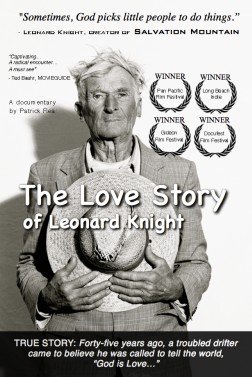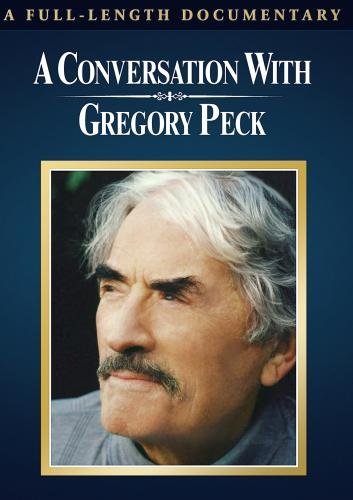“An Awfully Nice Guy”

| None | Light | Moderate | Heavy | |
|---|---|---|---|---|
| Language | ||||
| Violence | ||||
| Sex | ||||
| Nudity |
What You Need To Know:
Crafted by Oscar-winning filmmaker, Barbara Kopple, A CONVERSATION WITH GREGORY PECK is a loving look at the life of a very nice Hollywood star. Gregory Peck was not on the A-list, but he starred in some significant movies, including TO KILL A MOCKINGBIRD. This documentary follows him as he does a few of his one man conversations with audiences in theaters, shows appropriate footage from his movies and follows him with his family. One woman flew from England to Boston see if Mr. Peck was really that nice and concluded that he was. Another man became a lawyer because of Mr. Peck’s portrayal of a courageous lawyer in TO KILL A MOCKINGBIRD. Mr. Peck is known for his commitment to liberal causes, but he is not doctrinaire and has retained a good deal of his Catholic faith. Mr. Peck says that he wants to be remembered for being a loving father and a good husband. According to his second wife and children, he succeeded.
Mr. Peck is not deep and profound, but honest and decent, and so is A CONVERSATION WITH GREGORY PECK. As one reviewer noted, “only a curmudgeon would find fault” with this movie
Content:
(BB, PCPC, CC, L, A) Moral worldview with a politically correct, liberal point of view as well as some Christian elements; a humorous Irish prayer talking about going to heaven before the Devil knows that you are dead; and, alcohol use at dinner.
More Detail:
Crafted by Academy Award-winning documentary filmmaker, Barbara Kopple, A CONVERSATION WITH GREGORY PECK is just that: a loving look at the life of a very nice Hollywood star whose career and life extended slightly beyond the Golden Age of Hollywood. Gregory Peck was not the most charismatic of the Golden Age stars; that accolade could go to Jimmy Stewart, John Wayne, Gary Cooper, Clark Gable, or Cary Grant. In fact, Mr. Peck was not even under contract to a major studio in the days when everybody who was anybody was under contract; instead, he free lanced. However, to his credit, he starred in some significant movies, including THE KEYS OF THE KINGDOM, THE YEARLING, ROMAN HOLIDAY, MOBY DICK, and, most significantly, TO KILL A MOCKINGBIRD. It is this movie, TO KILL A MOCKINGBIRD, that elevated Gregory to his revered status.
The documentary A CONVERSATION WITH GREGORY PECK started with the idea of filming one of Mr. Peck’s one man conversations with an audience that toured the U.S. However, Barbara Kopple was so intrigued by the reaction of the audience that she decided to do a full-fledged documentary about Mr. Peck. What was it about the audience that intrigued her? Well, one woman spent her life savings to fly from England to Boston see if Mr. Peck was as nice in person as he was on the big screen (she concluded that he was, and he wished her God’s blessing), and another man became a lawyer because of Mr. Peck’s portrayal of a courageous lawyer in TO KILL A MOCKINGBIRD and even named his son Atticus after the name of Mr. Peck’s famous character. Such devotion and influence captured Barbara’s attention. In a press conference, she says that she became a believer that Mr. Peck was just as nice and decent in real life as he was on the screen.
The documentary follows Mr. Peck as he does a few of his one man conversations with audiences in theaters around the country, shows appropriate footage from his movies and follows him with his family. Mr. Peck says that he wants to be remembered for being a good storyteller and more so for being a loving father and a good husband.
According to his second wife and their children, he succeeded. However, his first three boys are mentioned, and two are doing all right, but one of his boys committed suicide, which was tragic. This tragedy sent Mr. Peck into depression for months, but Mr. Peck seems to have made an effort to learn throughout his life how to be better.
Born in 1916, Mr. Peck’s parents divorced when he was young. Subsequent to the divorce, Peck was handed off to his Grandmother and went to a Catholic military academy.
His Catholic upbringing lingers in his language. He says, “God bless you,” to those he meets and pronounces an Irish blessing at the end of the movie. In the movie, one audience member, a priest, asks him if he ever had a “call,” and he said that he did when he was “13 or 14, but I got over it.” At the press conference, I asked him whether he was still a believer because he used so much Christian language, and Mr. Peck replied that he still is influenced by his Catholic upbringing.
Mr. Peck is known for his commitment to liberal causes (he spoke out against the Vietnam War and now speaks out against guns), and he sides with those he sees as weak and powerless, including, it seems, homosexuals. However, Mr. Peck is not doctrinaire in a well-reasoned Cultural Marxist sense, so, at the press conference after the Cannes Film Festival screening, in response to a reporter for a socialist newspaper, he dismissed a question about the inordinate size of the salaries of Hollywood stars ($30 million) with the humorous statement “I was born too late,” and he expressed pride for his son who served in Vietnam and works to help Vietnam vets. Also, he believes that the Golden Age of Hollywood was a better time, when actors were happier and everyone was more polite.
In the final analysis, Mr. Peck is a nice man and a man of dignity and values. He is not deep and profound, but honest and decent, and so is Ms. Kopple’s movie, A CONVERSATION WITH GREGORY PECK. As one reviewer noted, “only a curmudgeon would find fault” with this movie, or, one might add, with Mr. Peck.
The documentary A CONVERSATION WITH GREGORY PECK started with the idea of filming one of Mr. Peck’s one man conversations with an audience that toured the U.S. However, Barbara Kopple was so intrigued by the reaction of the audience that she decided to do a full-fledged documentary about Mr. Peck. What was it about the audience that intrigued her? Well, one woman spent her life savings to fly from England to Boston see if Mr. Peck was as nice in person as he was on the big screen (she concluded that he was, and he wished her God’s blessing), and another man became a lawyer because of Mr. Peck’s portrayal of a courageous lawyer in TO KILL A MOCKINGBIRD and even named his son Atticus after the name of Mr. Peck’s famous character. Such devotion and influence captured Barbara’s attention. In a press conference, she says that she became a believer that Mr. Peck was just as nice and decent in real life as he was on the screen.
The documentary follows Mr. Peck as he does a few of his one man conversations with audiences in theaters around the country, shows appropriate footage from his movies and follows him with his family. Mr. Peck says that he wants to be remembered for being a good storyteller and more so for being a loving father and a good husband.
According to his second wife and their children, he succeeded. However, his first three boys are mentioned, and two are doing all right, but one of his boys committed suicide, which was tragic. This tragedy sent Mr. Peck into depression for months, but Mr. Peck seems to have made an effort to learn throughout his life how to be better.
Born in 1916, Mr. Peck’s parents divorced when he was young. Subsequent to the divorce, Peck was handed off to his Grandmother and went to a Catholic military academy.
His Catholic upbringing lingers in his language. He says, “God bless you,” to those he meets and pronounces an Irish blessing at the end of the movie. In the movie, one audience member, a priest, asks him if he ever had a “call,” and he said that he did when he was “13 or 14, but I got over it.” At the press conference, I asked him whether he was still a believer because he used so much Christian language, and Mr. Peck replied that he still is influenced by his Catholic upbringing.
Mr. Peck is known for his commitment to liberal causes (he spoke out against the Vietnam War and now speaks out against guns), and he sides with those he sees as weak and powerless, including, it seems, homosexuals. However, Mr. Peck is not doctrinaire in a well-reasoned Cultural Marxist sense, so, at the press conference after the Cannes Film Festival screening, in response to a reporter for a socialist newspaper, he dismissed a question about the inordinate size of the salaries of Hollywood stars ($30 million) with the humorous statement “I was born too late,” and he expressed pride for his son who served in Vietnam and works to help Vietnam vets. Also, he believes that the Golden Age of Hollywood was a better time, when actors were happier and everyone was more polite.
In the final analysis, Mr. Peck is a nice man and a man of dignity and values. He is not deep and profound, but honest and decent, and so is Ms. Kopple’s movie, A CONVERSATION WITH GREGORY PECK. As one reviewer noted, “only a curmudgeon would find fault” with this movie, or, one might add, with Mr. Peck.


 - Content:
- Content: 
